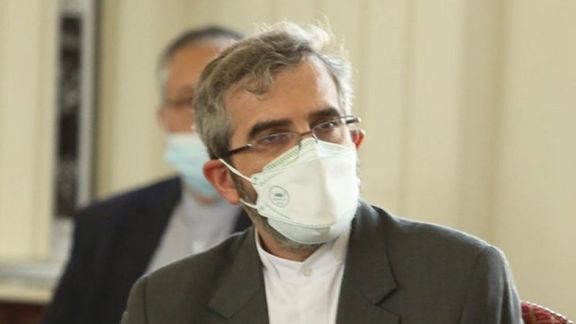Iran Emphasizes Bilateral Talks With JCPOA Members, Leaving US Out

Iran’s chief nuclear negotiator visiting Moscow suggested late Thursday that his country is not negotiating with the United States, but with other world powers.

Iran’s chief nuclear negotiator visiting Moscow suggested late Thursday that his country is not negotiating with the United States, but with other world powers.
Ali Bagheri Kani who traveled to Moscow on Thursday after a trip to Brussels the day before, spoke with Islamic Republic News Agency, IRNA and in response to a question about the US welcoming Iran’s decision to return to the nuclear talks, said, “Our discussions are with 4+1”.
The four powers Bagheri referred to are four of the five permanent members of the United Nations Security Council, minus the United States. Germany is the fifth country, which was a signatory of the Joint Comprehensive Plan of Action (JCPOA) but not a permanent member of the Council. While the 4+1 have remained in JCPOA, the United States withdrew from the agreement in 2018.
Negotiations that began in Vienna in April after President Joe Biden assumed office and expressed his intention to restore the 2015 Iran nuclear deal, involved the four Security Council members directly meeting with Iran, plus the United States negotiating on the sidelines of the group, with the mediation of its three European allies.
After leaving the Vienna format in June and delaying its return until now, Iran seems to be trying to avoid the quicker, on-the-spot Vienna talks, leaving the US out of a more direct involvement in the negotiations.
Bagheri also told IRNA that Tehran will continue discussions on a bilateral mode with JCPOA participants, meaning 4+1.
So far it appears that Tehran is trying to negotiate with Enrique Mora, the chief European Union coordinator of the Vienna talks and with Russia, and has not met with the UK, France and Germany.
At the same time, Iran’s Foreign Minister Hossein Amir-Abdollahian demanded on Wednesday that the US must show “goodwill” and release $10 billion of Iran’s frozen funds to help advance the talks, while Bagheri in Brussels said the Vienna talks will resume by the end of November.
Asked in Moscow if there is a more concrete date, Bagheri said, “What is more important in the new round of negotiations is the readiness of the other side to make serious decisions about lifting sanctions.”
From the foreign minister’s demand for the release of $10 billion and Bagheri’s claim that currently there is a new format of talks hinging on US lifting sanctions, it seems Iran has departed from the logic of the Vienna talks and is putting forth new conditions.
In Vienna, the talks were about charting a course for the “mutual return” of Iran and the US to the JCPOA. This meant negotiating a sequence of steps and actions that would lead to an eventual restoration of all JCPOA obligations. Lifting US sanctions was an important part of that sequence, which Iran seems to want to change now, asking for money before the process of returning to the agreement is negotiated.